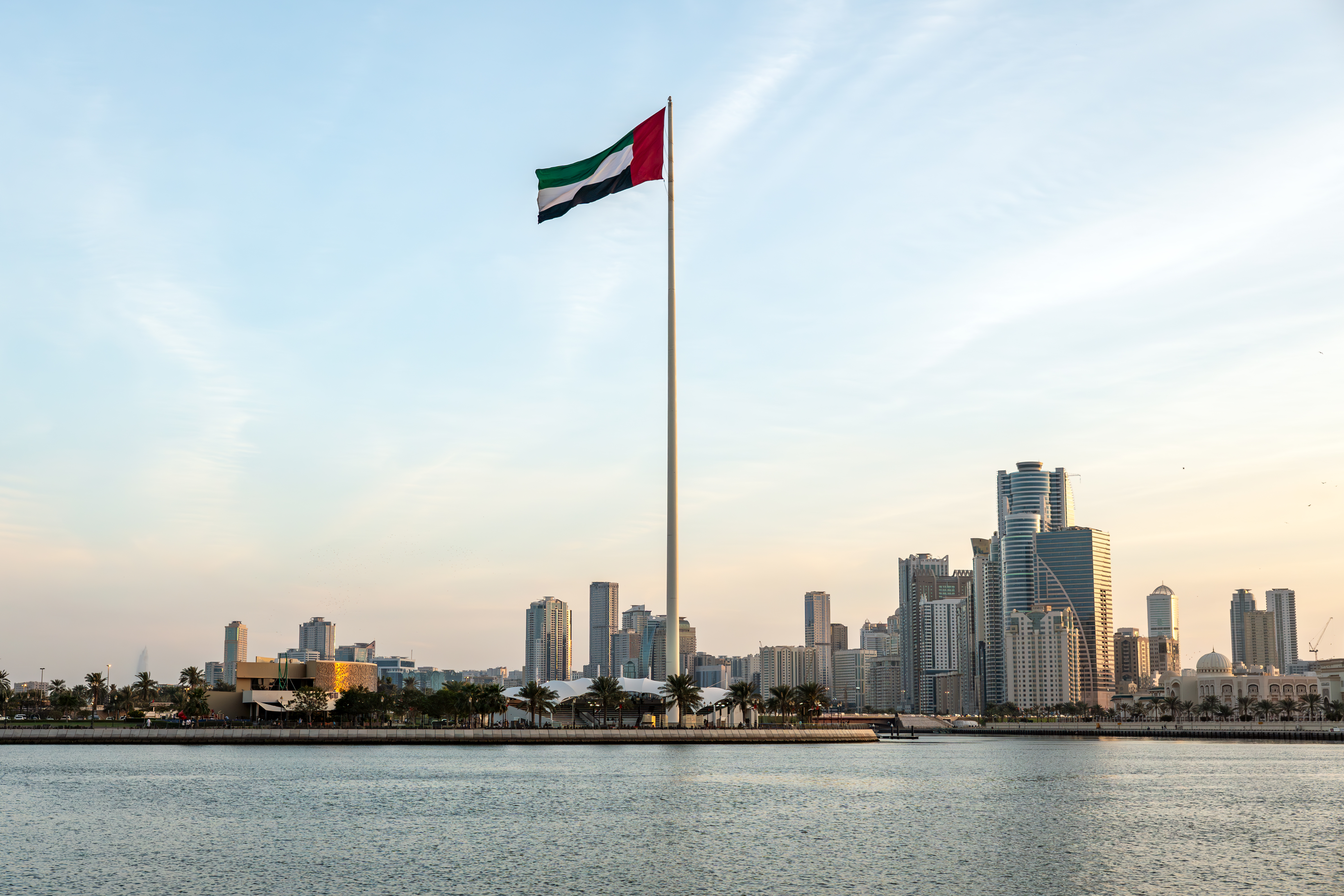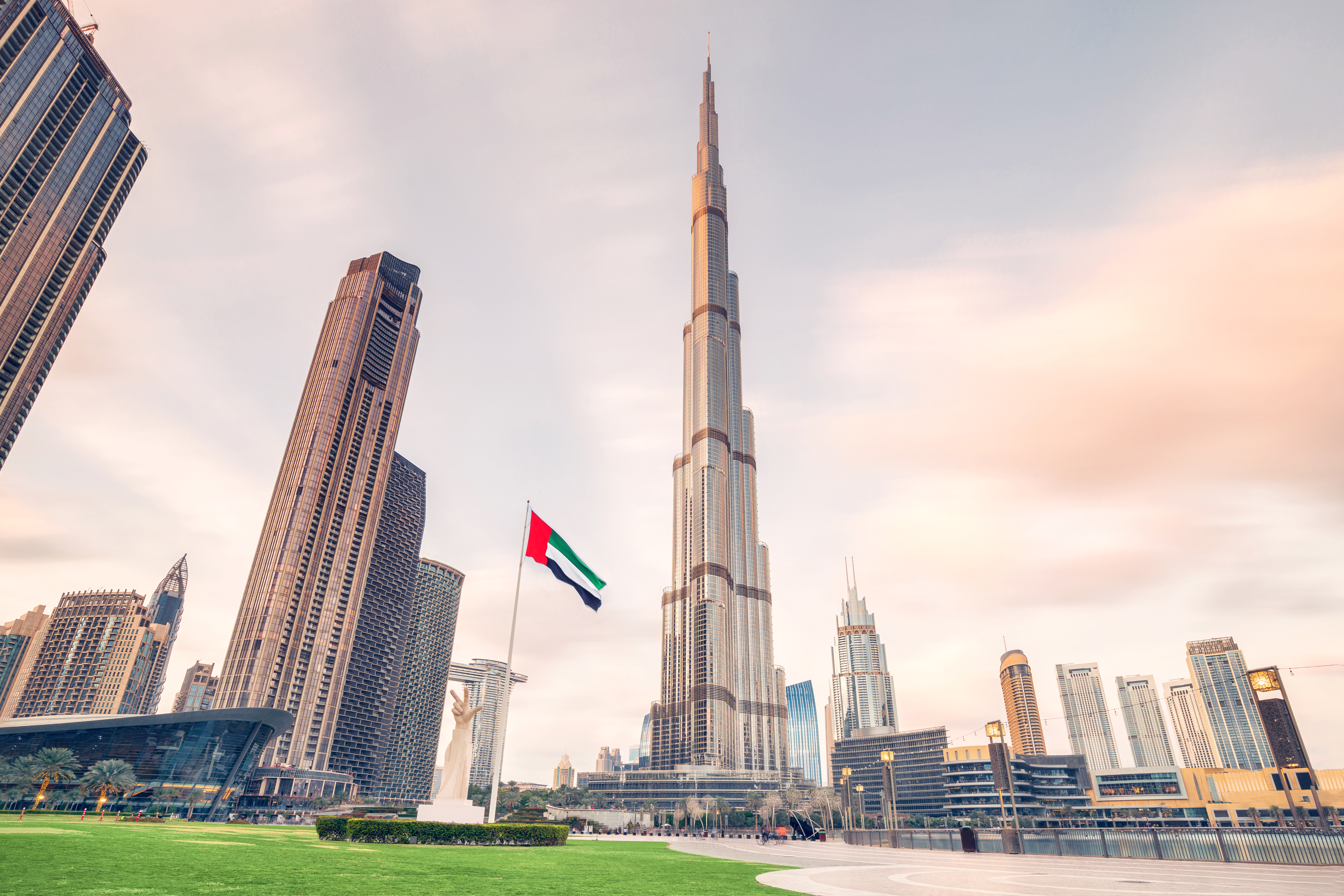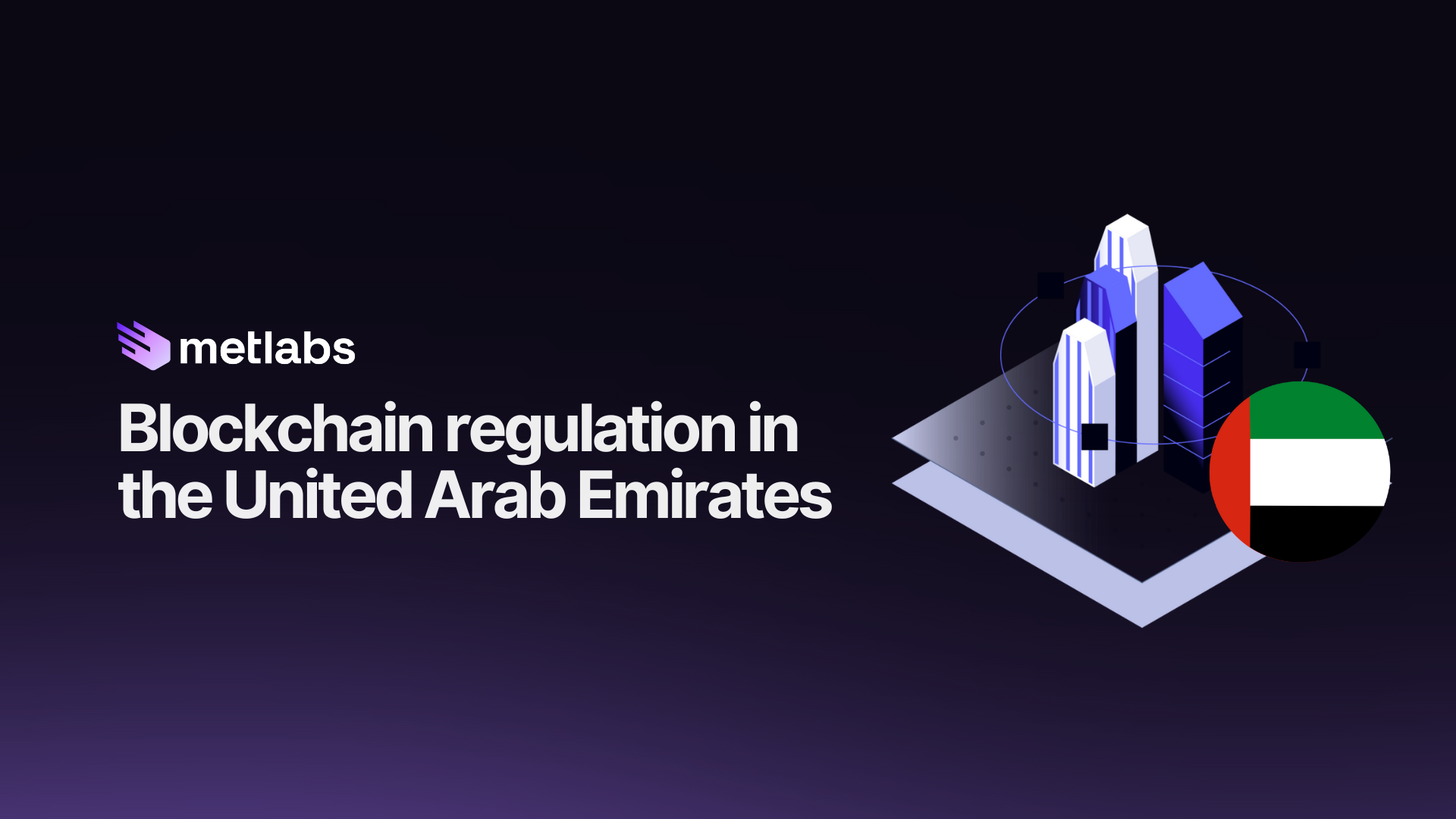The adoption of blockchain technology and asset tokenization is advancing at a rapid pace, but the real engine driving its global development is the existence of a clear, consistent and innovation-friendly legal framework.
Some countries have already established themselves as regulatory benchmarks, establishing specific rules for cryptoassets, DLT infrastructures and token issuance with legal backing. In this article we show you the relevant information on the regulation of digital assets in the United Arab Emirates, which you can use as a guide if you are looking to operate internationally or evaluate different strategic locations.
Current legislation on blockchain and virtual assets in the United Arab Emirates.
Act No. 4 of 2022 (VARA Dubai)
Establishes VARA as the exclusive regulator of digital assets in Dubai, excluding the DIFC. Obliges VASPs to obtain licenses, comply with AML/KYC rules and protect consumers. It regulates seven activities such as custody, exchanges and lending, and prohibits privacy coins. It imposes penalties for non-compliance and also requires prior submission of technical documents for new issues.
Cryptoassets Activities Regulations, CAAR (SCA, 2020)
Applies at the federal level outside of free zones such as ADGM and DIFC, regulating the offer, issuance and custody of cryptoassets. Requires SCA licensing, periodic audits and suspicious transaction reporting. Aligns with FATF AML/CFT guidelines and imposes sanctions for market abuse. Establishes minimum capital requirements for exchanges. Also requires business continuity plans and investor protection measures.
Circular CBUAE 2/2024 (Stablecoins)
Mandates stablecoins to be backed 1:1 in dirhams (AED) and licensed by the Central Bank of the United Arab Emirates. Prohibits algorithmic or foreign currency-linked stablecoins. Imposes quarterly audits and strict liquidity controls. As of January 2025, trading non-AED-backed stablecoins is illegal.
Digital Assets Law No. 2/2024 (DIFC)
Recognizes digital assets as property within the common law of the DIFC and regulates their issuance and custody. Distinguishes between security tokens and utility tokens, each with specific DFSA licenses. Arises from a 2023 public consultation and includes technical standards for their transfer and control. Defines rights and responsibilities for smart contracts. Protects against unauthorized duplication and ensures contractual legality.
FSRA Cryptoassets Framework (ADGM)
Authorizes exchanges, custodians and advisors to operate under FSRA license in the ADGM. Requires physical presence in Emirates and compliance with AML/CFT and common law principles. Adopts dynamic guidelines including DAOs and Web3 with innovative and secure approach. Prohibits the use of privacy currencies such as Monero. Establishes penalties for deceptive practices and requires clarity in advertising of services.
RWA Tokenization Guidelines (VARA 2025)
They regulate the issuance, listing and secondary trading of RWA tokens, focused on real estate and commodities. They require disclosure of economic rights, 15% liquidity reserves and ownership validation. Technical requirements for the use of DLTs are included. They favor transparency and legal certainty in tokenized physical assets.
Frame for DAOs (RAK DAO 2024)
RAK Digital Assets Oasis provides a legal framework for DAOs with legal personality and limited liability. It regulates decentralized governance, token voting and tax obligations. It allows issuing governance tokens and integrating with DeFi under VARA surveillance. Enables the creation of hybrid structures between Web3 and traditional corporate models.
Sandboxes and special economic zones in the United Arab Emirates
VARA, ADGM, DIFC and RAK DAO operate sandboxes that allow testing blockchain and Web3 technologies. They offer a flexible regulatory framework of up to 18 months for pilots, such as the Central Bank’s CBDC. These zones provide tax incentives and access to supervised venture capital. They have attracted international real asset tokenization projects. They also collaborate with global bodies to harmonize regulations and technical standards.
Tokenization makes it possible to digitally represent real-world assets through blockchain, but for it to have legal value, it is essential that there is a regulatory framework that recognizes this operation. The United Arab Emirates takes its own approach, establishing specific rules for the issuance, custody or trading of tokens. In this block we explain how asset tokenization is regulated from a legal point of view, taking an advanced jurisdiction such as the United Arab Emirates as an example.

Regulation of asset tokenization in the United Arab Emirates.
Real-world asset tokenization in the United Arab Emirates has evolved from a trend to an established regulatory reality, especially in Dubai and Abu Dhabi. Local authorities, such as VARA and the SCA, have established clear guidelines for token issuance and trading, with high standards for transparency and investor protection. Recent updates gave market players until June 2025 to adapt, reflecting institutional commitment to legal certainty.
Cases such as the Dubai Land Department pilot show the dynamism of the sector. The latter has attracted more than 3,000 investors on a waiting list and could transform the local real estate market into a $16 billion industry, powered by blockchain.
Abu Dhabi, through ADGM, has promoted legal frameworks for DAOs and digital assets, while the SCA has developed a pioneering framework for commodity tokens, differentiating between asset categories and establishing requirements in cybersecurity, encryption and technological governance. In addition, the Emirati legal framework mandates clear disclosure of risks and investor rights and provides for active anti-fraud oversight.
Regulatory sandboxes in VARA, ADGM and other economic zones allow innovative projects to be tested under official supervision, promoting international collaboration. In short, the UAE is consolidating its position as a global leader in tokenization, combining legality, innovation and openness to the digital financial future.
Regulatory bodies and authorities for digital assets in the United Arab Emirates
VARA (Virtual Asset Regulatory Authority, Dubai)
VARA is the exclusive regulator of virtual assets in Dubai (except DIFC), established by Law No. 4 of 2022. It oversees the licensing of VASPs and regulates exchanges, wallets and brokers. Strengthens rules on leverage, collateral and marketing, protecting consumers. It imposes sanctions for non-compliance and aligns its framework with global standards. Its mission is to position Dubai as an international hub.
SCA (Securities and Commodities Authority, federal)
The SCA regulates cryptoassets domestically outside of free zones such as ADGM and DIFC. Issues licenses to exchanges and advisors, including fintech and robo solutions. Strengthens AML/KYC standards in line with FATF and protects investors. Issues guidelines following industry consultations to encourage innovation. Its framework seeks to consolidate the UAE as a global benchmark in digital finance.
FSRA (Financial Services Regulatory Authority, ADGM)
The FSRA oversees financial services within the Abu Dhabi Global Market (ADGM). It regulates exchanges, custodians and advisors, with periodic inspections to ensure AML/CFT compliance. Has led frameworks on financial sustainability and ESG products. Collaborates with the industry to update regulations with a focus on innovation and transparency. His work enhances Abu Dhabi’s non-oil growth and competitiveness.
DFSA (Dubai Financial Services Authority, DIFC)
The DFSA regulates financial services and digital assets in the DIFC, issuing licenses to institutions under high global standards. It distinguishes between types of tokens and updates its regulations as the market develops. Conducts audits to ensure transparency and consumer protection. It establishes limits for crypto investment and rules for stablecoins. Its framework promotes the integrity and evolution of the DIFC financial ecosystem.
Central Bank of the United Arab Emirates
Central Bank regulates stablecoins and stored value funds, as well as leading the implementation of a national CBDC. Requires 1:1 backing in AED and license to issue payment tokens. Participates in the FIT program to modernize the UAE’s financial infrastructure. Promotes payment digitization, innovation and global competitiveness. Coordinates with other entities to maintain regulatory consistency in the financial system.
Dubai Land Department (DLD)
The Dubai Land Department (DLD) is the authority in charge of regulating and supervising the registration of real estate in Dubai. Its main objective is to improve efficiency and transparency in land and real estate registration processes. It drives digitalization and the adoption of blockchain technologies to facilitate secure and agile transactions. It also promotes initiatives to attract foreign investment and strengthen confidence in the local real estate market.
RAK DAO (Ras Al Khaimah Digital Assets Oasis)
RAK DAO is a free zone focused on digital assets and DAOs, with a pioneering legal framework for decentralized entities. It enables the formal incorporation of DAOs with clear rules for governance and liability protection. Facilitates on-chain and off-chain ownership, legal contracts and dispute resolution. Offers attractive tax benefits for Web3 projects. Seeks to position itself as a hub for digital innovation in the UAE.
Launching a business based on digital assets requires more than just technology: it is also necessary to comply with legal requirements such as licensing, registration and regulatory obligations. These conditions ensure that the business model is viable and sustainable over time, and that it complies with transparency and fraud prevention standards. In this section we explore what licenses are typically required and what compliance criteria blockchain companies operating in the UAE must follow.

What licenses and requirements are needed to trade cryptoassets in UAE?
VASP License
Depending on the jurisdiction, companies must obtain a virtual asset service provider (VASP) license issued by VARA, SCA, DFSA or FSRA. This license is mandatory for activities such as exchange, custody, issuance and advice on cryptoassets.
SCA License: Required for exchanges, custodians and issuers at the federal level.
VARA License: Mandatory for VASPs in Dubai (except DIFC).
DFSA License: For activities in the DIFC.
FSRA License: Required to operate in ADGM (Abu Dhabi).
Stablecoin license: Issued by the Central Bank for AED-backed tokens.
AML/KYC Compliance
Companies must implement robust AML/KYC policies and procedures, comply with international standards such as FATF recommendations, and establish adequate governance and risk management systems. Compliance is mandatory for obtaining and maintaining licenses.
Other regulatory requirements
Regulatory authorities set minimum capital requirements that vary by activity and jurisdiction. In addition, most jurisdictions require companies to have a physical presence in the UAE, either through an office in the country or in a specific free zone.
Are you exploring developing your blockchain project in the United Arab Emirates?
At Metlabs we help companies like yours and offer comprehensive support in the development of blockchain projects and tokenization of assets such as real estate, financial assets, carbon credits, etc. fully aligned with the legal framework of the United Arab Emirates.
Contact us and find out how we can help you meet all your needs, both legal and technical.



